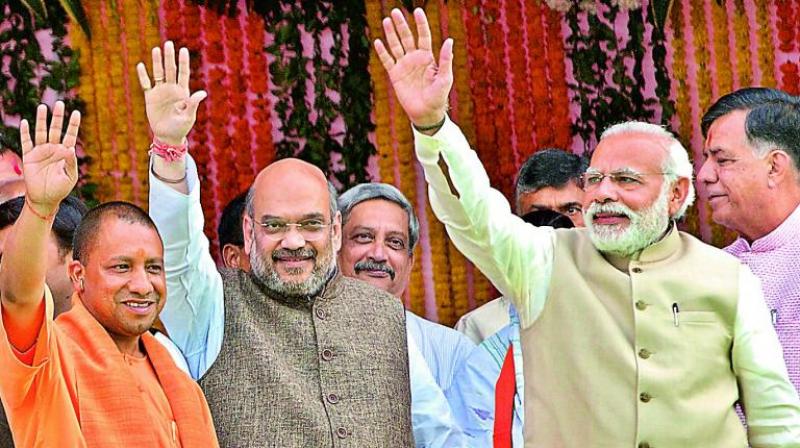The Ministry of Home Affairs (MHA) has finally notified the Citizenship Amendment Rules, 2024, and implemented the Citizenship Amendment Act (CAA) passed by Parliament in 2019. This long-awaited development comes just days before the announcement of general elections.
The CAA aims to provide citizenship to undocumented individuals from Hindu, Sikh, Buddhist, Parsi, Christian, and Jain communities who have faced persecution in Pakistan, Bangladesh, and Afghanistan. However, to apply for citizenship under this act, applicants must adhere to specific requirements outlined in the newly released rules.
Applicants are required to provide six types of documents, including a specification of their “date of entry” into India. The permissible documents include birth certificates, tenancy records, identity papers, and educational certificates issued by government authorities in the specified countries.
Additionally, applicants must obtain an “eligibility certificate” from a locally reputed community institution confirming their membership in one of the specified communities. This certificate is crucial for proving eligibility under the Citizenship Amendment Act.
The application process has been streamlined through an online portal and a dedicated mobile application, Citizenship Amendment Act-2019. All required documents, along with photographs, must be uploaded online for processing. Background checks by security agencies will be conducted before applications are reviewed by an empowered committee.
The empowered committee, chaired by the Director of Census Operations in each state, will include representatives from various government agencies, including the Intelligence Bureau and the Post Master General. At the district level, committees headed by senior officials will scrutinize applications before making recommendations.
Applicants must also provide evidence of their parents’ date of birth, such as passport copies or birth certificates. In cases where parental documents are unavailable, the applicant’s birth certificate must clearly indicate the parents’ names, addresses, and nationalities.
Furthermore, to establish that the applicant entered India before the December 31, 2014 cutoff date, additional documents such as passports, visas, and utility bills are required. Notably, documents issued by Indian authorities will be admissible even beyond their validity period.
The rules also exempt members of the specified communities from certain criminal proceedings under the Foreigners Act, 1946, and the Passport Act, 1920. However, applicants must appear in person to subscribe to their applications and take an oath of allegiance.
Those applying for naturalization under the provisions of the Third Schedule must submit affidavits verifying the accuracy of their statements, along with character references from Indian citizens. Additionally, applicants must declare their proficiency in one of the languages specified in the Eighth Schedule of the Constitution.
Government’s Response to False Narratives on Citizenship Amendment Act
Amidst the notification of the Citizenship Amendment Act (CAA) rules, it’s crucial to address the rampant spread of misinformation and rumors by anti-social elements. Various false narratives surrounding the CAA have circulated, causing confusion and unrest. The government is actively working to debunk these rumors and provide accurate information to the public. Efforts are underway to ensure transparency and clarity regarding the implementation of the Citizenship Amendment Act, emphasizing its humanitarian aspects and the protection it offers to persecuted minorities from neighboring countries.
Also, do read: Latest: Controversy in Delhi: Police Officer Suspended for Alleged Assault During Namaz

[…] Also, do read: Latest: Implementation of Citizenship Amendment Act 2024: What You Need to Know […]
[…] Also, do read: Latest: Implementation of Citizenship Amendment Act 2024: What You Need to Know […]
[…] Also, do read: Latest: Implementation of Citizenship Amendment Act 2024: What You Need to Know […]